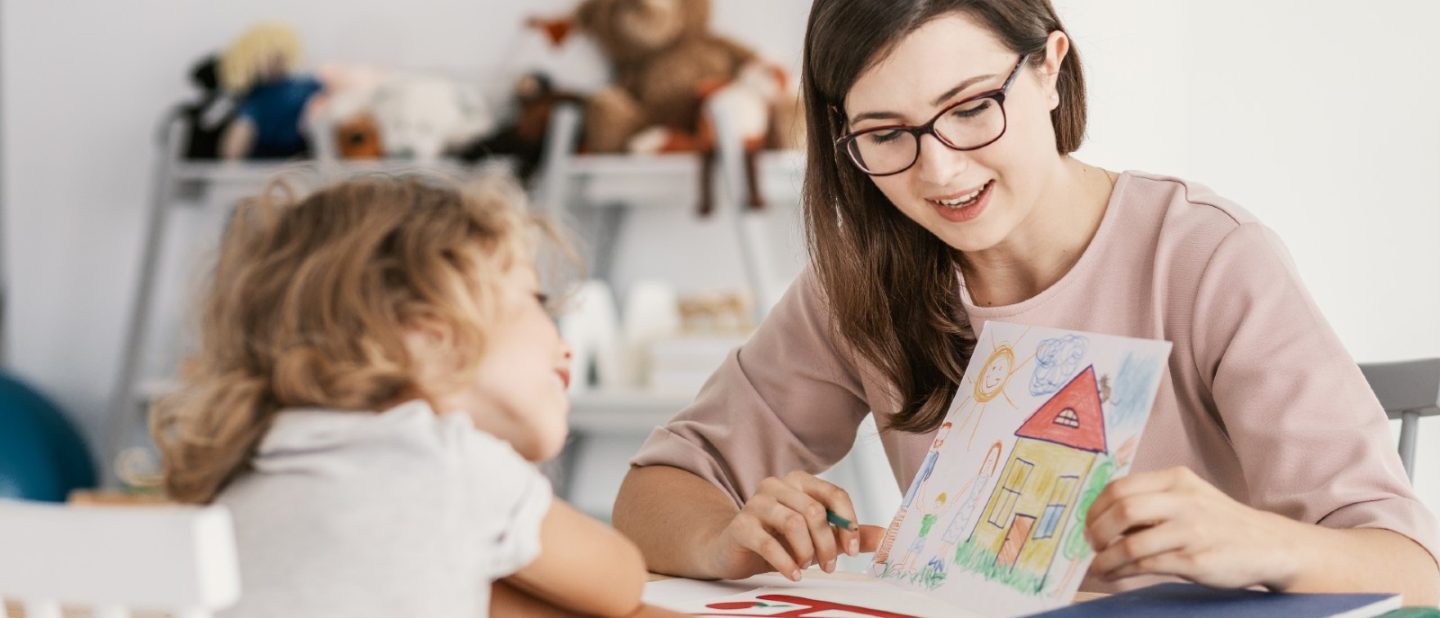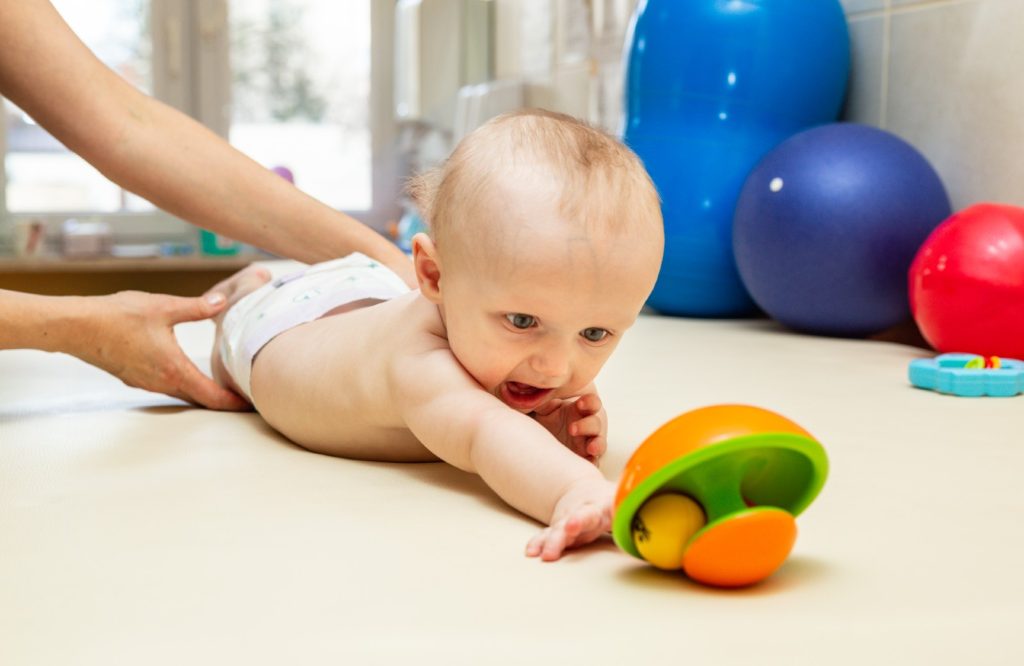
Identifying a developmental issue: signs to look for and actions to take
By Emily Hayles
Parents know their child better than anyone else. As a result, it’s important for you to be empowered with knowledge and strategies to make sure you can identify concerns with your child’s development and get help as quickly as you need to.
As a parent, you understand better than anyone else what your child can and can’t do, and how your child’s abilities and behaviours might vary depending on factors such as time of day, the environment and the people around them. You have also seen changes in your child over time, so you know whether these potential developmental concerns have gotten better, worse or remained the same. All of this knowledge is very relevant and valuable, and you should not underestimate your insight.
If you are not sure whether what you are seeing in your child should be cause for concern, the following outlines some signs that your child might have a developmental concern that you should seek a review or help for. Please note that this list is not exhaustive – if your concerns you have for your child are not listed, I would encourage you to still seek an assessment and help from a health professional or therapist.
SIGNS TO LOOK FOR IN… EARLY INFANCY OR EARLY DEVELOPMENT
• Your baby feels floppy or stiff to hold, or they hold their limbs very stiffly.
• Your baby does not use their eyes or vision as expected (not looking at things in their environment), or they are not interacting with you as you would expect them to (making eye contact, cooing or babbling, interacting or exploring toys and other things in their environment).
• You have concerns about how your baby is learning to move, or they are delayed in movement skills; for example, they are not rolling or sitting or standing around the age when they would be expected to.
• Your baby uses one side of their body more than the other side (for example, reaching with one arm but not the other; kicking one leg much more than the other).
• Your baby was born prematurely, and has experienced medical events that put them at risk of a developmental concern.
• Your baby has been diagnosed with a condition that is likely to affect their development such as Down syndrome or cerebral palsy for example.
SIGNS TO LOOK FOR IN… LATER CHILDHOOD
• You have concerns about your child’s motor skills, such as the way they walk, run, jump, hop, catch a ball and/or climb. They might have poor posture, frequent trips or falls, poor balance, and/ or co-ordination. They might appear to move differently from other children and may have trouble keeping up with peers in games, or they might not be able to do certain activities at all.
• Your child might be taking longer or struggling to learn self-care skills such as toileting, eating and drinking and mealtime behaviours, and washing and dressing.
• Your child might be struggling to keep up with their school work, or is falling behind their classmates. Their handwriting might be messy, or they might have trouble following the teacher’s instructions or maintaining focus on class activities.
• Your child does not interact with other people or things in their environment as you would expect them to. For example, your child does not make eye contact, they do not respond to their name.
• Your child is not talking or communicating (including non-verbal interactions) like other children their age.
• Your child has difficulty maintaining attention, gets distracted easily, or has trouble concentrating at home or at school.
• Your child has difficulty managing their emotions or behaviours and may become unexpectedly overwhelmed in certain situations.
• Your child has been diagnosed with a developmental condition that can be identified later in childhood such as autism spectrum disorder, intellectual impairments or rare genetic conditions, or has acquired a developmental condition due to trauma.
As already mentioned, this list is not exhaustive, and the descriptors are pretty general, so if you have a concern relating to your child that is not on this list, please seek help for it as early as you can.
Even if it turns out you have nothing to worry about, seeking help from a health professional as early as possible will either:
• Provide an early baseline assessment that, when combined with later assessments, might help to figure out if something is going on for your child and/or provide peace of mind.
ACHIEVING MILESTONES – WHAT IS IMPORTANT?
A lot of importance is often placed on a child’s age in relation to achieving certain milestones i.e. walking at around 12 months for example. It’s important to understand that this is just a “ballpark” age and what’s considered ‘normal limits’ for a child to reach this developmental milestone is actually a wide range. What is more important to understanding whether your child is developing as expected is how they develop – whether they are using typical movement patterns, understanding and starting to use language as expected, exploring and playing, as well as how they are progressing over time.
When self-assessing your child’s development, consider the following questions:
• Is your child achieving developmental milestones within the age brackets that they are expected?


• How is your child achieving those milestones? Are they moving or learning as you would expect or are they doing something unusual?
• Is your child progressing in development over time or are they falling further and further behind?
This timeline of progress and the information about how your child is developing provides a health professional with so much more information about your child’s development than whether or not they are achieving a milestone at a specific age.
HOW TO SEEK HELP EARLY
Depending on what your concerns are for your child, you may choose to book in with a doctor or a therapist, or even both. Booking in with a GP or paediatrician is useful to get an overall assessment of your child’s development. Going down this route is also necessary if you think your child might need to have specific investigations done such as blood tests or x-rays or that they may need a specialist referral.
Sometimes a paediatrician or GP will refer a child to a see a therapist to ask for the therapist’s opinion on the child’s development or presentation so they have more specific information before giving a diagnosis. Alternatively, a therapist may be able to identify if a child has a developmental difficulty or specific condition prior to the child seeing a paediatrician or GP.
Therapists such as physios, occupational therapists, and speech and language pathologists, especially those of us who work in the area of child development, have an excellent understanding of the areas affecting your child within the field in which we work. But, even more importantly, therapists have extensive training in the management and treatment of developmental conditions.
By seeing a therapist as early as possible, even before or at the same time as seeing a GP or paediatrician, you can receive a specific assessment of your child’s abilities, which will help the GP or paediatrician achieve a complete and thorough picture of your child’s presentation. Not only that, but you will also be able to start on specific treatment to assist your child to improve or maximise those abilities.
At this point, I want to highly recommend that you find experts you can trust, rather than listening to friends or ‘Dr Google’. Searching for information online you are going to find both the worst and best-case scenarios – neither of which are going to help you or your child.
TRUSTING YOUR GUT
I wish I could say it never happens, but I do know that sometimes parents’ concerns can be initially dismissed, or parents are not listened to by the experts they are seeking help from.
Let me repeat – you know your child better than anyone else. So, if you have a lingering concern that isn’t being taken seriously, please trust your gut and seek out further opinions. When you do this, use all the strategies above but also explain to the second health professional why are seeking a second opinion. What about that first opinion didn’t sit well with you? This may help the second professional understand areas that might not have been looked into, or additional investigations that could be done or strategies to try.
Whenever you are seeking out the opinions of health professionals, it is so important that you can find people you can trust. Having a professional or team of professionals you trust, who you know are being upfront and honest with you, and are doing everything they can to help you, will help you to recognise the benefits of getting early intervention and help for your child, perhaps even before the signs of their condition or disability are fully obvious to you.
My top tips to prepare you for seeking help are as follows:
Create a diary of your child’s current and past developmental progress. Go back through photos and videos, review baby books or personal diaries. This will help you put together a clear history.
If your child’s concerns or behaviours only occur sometimes or in certain situations, try to catch them on video or in photos and take them along to your first appointment.
Write down your concerns that you want to talk about, the impact on your child’s life, your concerns for the future and the outcome you want from the appointment.
Understanding and being able to articulate this level of information can sometimes help direct the health professional to the action you are ultimately wanting for your child. Write down questions you want to ask so that you don’t forget anything.
Consider bringing someone trusted with you – they can reiterate what you’re saying and listen to help you remember what was said during the appointment.
This article has been adapted from a chapter from the book of ‘Braver than you think: How to help your child with a disability live their best life’ by Emily Hayles. Emily is the principal physiotherapist and owner of Move and Play Paediatric Therapy, a multidisciplinary children’s therapy service based in Mackay, Queensland. Ph: (07) 4942 9343 | Email: [email protected] | moveplaypaedtherapy.com.au | facebook.com/moveplaypaedtherapy | @moveplaypaedtherapy







